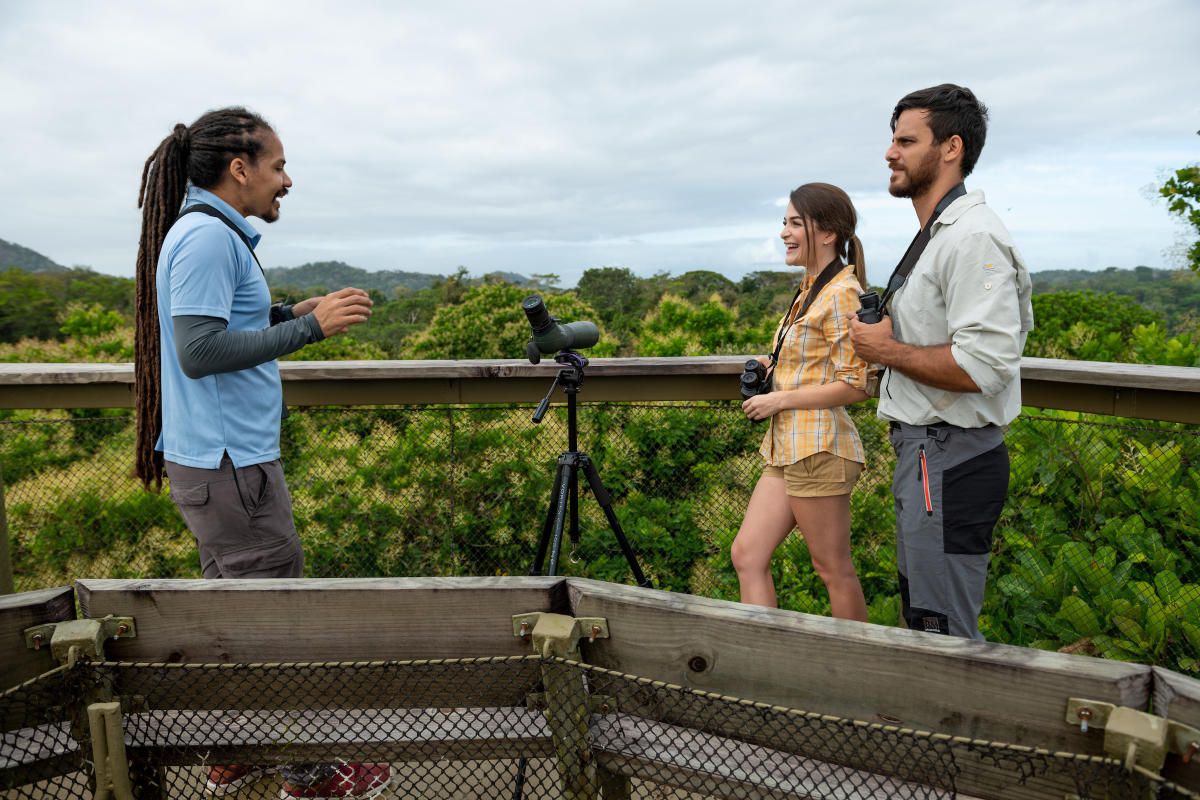Tour companies for seniors are experiencing a surge in popularity as the active aging population seeks enriching travel experiences. This burgeoning market offers a diverse range of options, from escorted tours providing comprehensive support to independent travel packages allowing for greater personal freedom. Careful consideration of factors such as accessibility, health and safety protocols, and budget is crucial for selecting the ideal tour company and crafting a memorable and safe adventure.
The key lies in understanding the various tour types available, comparing services offered by different companies, and meticulously planning the trip to accommodate individual needs and preferences. This includes researching destinations, creating realistic budgets, and preparing for potential health concerns or emergencies. Ultimately, the goal is to ensure a rewarding and enjoyable travel experience tailored specifically to the needs of senior travelers.
Health and Safety Considerations: Tour Companies For Seniors
Safe and healthy travel is paramount for senior citizens embarking on tours. Tour operators prioritize the well-being of their older clientele, implementing various measures to mitigate risks and ensure a positive experience. Understanding these precautions and the role of travel insurance is crucial for peace of mind during the journey.
Senior travelers face unique health and safety challenges compared to younger individuals. Pre-existing conditions, medication needs, and potential for increased vulnerability to illness or injury necessitate proactive planning and preparedness.
Essential Health and Safety Precautions for Seniors
Before, during, and after a tour, several key precautions can significantly reduce the likelihood of health issues or accidents. These measures should be discussed with your physician and travel provider well in advance of departure.
- Consult your physician before traveling, particularly regarding any pre-existing conditions and necessary medications. Obtain a comprehensive medical summary and carry it with you at all times.
- Pack a well-stocked first-aid kit including any personal medications, prescription refills, and over-the-counter remedies for common ailments.
- Inform your tour operator of any dietary restrictions, allergies, or mobility limitations to ensure appropriate accommodations are made.
- Maintain a consistent medication schedule and carry a sufficient supply to last the entire duration of the trip, plus extra in case of delays.
- Wear comfortable, supportive shoes and clothing appropriate for the climate and planned activities. Avoid strenuous activities that could lead to injury.
- Stay hydrated by drinking plenty of water throughout the day, especially in hot or humid climates.
- Be aware of your surroundings and take precautions against theft or scams. Keep valuables secure and be mindful of your personal safety.
- Carry a copy of your itinerary, emergency contact information, and travel insurance details.
The Role of Travel Insurance for Seniors
Travel insurance is not merely an optional extra for senior travelers; it’s a crucial investment that provides vital protection against unforeseen circumstances. Comprehensive policies can offer significant peace of mind and financial security.
A robust travel insurance policy for seniors should cover medical emergencies, including evacuation and repatriation, hospitalization costs, and lost or stolen belongings. Some policies also offer trip cancellation or interruption coverage, which can be particularly beneficial if unexpected health issues arise before or during the trip. It is recommended to carefully review policy details and ensure adequate coverage for potential medical expenses, which can be substantially higher for older travelers.
Addressing Potential Health Emergencies During Tours
Reputable tour companies have established procedures for handling health emergencies. These procedures typically involve a designated point of contact, readily available medical assistance, and communication channels to ensure prompt response and support.
Many tour operators partner with local medical providers or have access to emergency medical services. They often include trained personnel within their tour groups or provide readily accessible contact information for medical professionals. Clear communication protocols are in place to facilitate rapid response in case of a medical event. The level of medical support varies depending on the tour and destination, with some tours offering more comprehensive medical assistance than others.
For example, a cruise tour might have a ship’s doctor readily available, while a land-based tour might rely on local medical facilities. Prioritizing a tour operator with a strong reputation for health and safety protocols is crucial for senior travelers.
Preparing for the Trip

A well-planned trip is a key ingredient to a relaxing and enjoyable senior travel experience. Thorough preparation minimizes stress and maximizes the opportunity to savor every moment. This section details essential steps to ensure a smooth and worry-free journey.
Packing Essentials for Seniors
Packing efficiently is crucial, especially for seniors who may have mobility limitations. Overpacking adds unnecessary weight and burden. A well-organized packing list ensures you have everything you need without excessive baggage.
- Clothing: Pack lightweight, wrinkle-resistant clothing items in neutral colors that can be mixed and matched. Include comfortable walking shoes, a light jacket or sweater, and appropriate attire for any planned activities (e.g., formal wear for a dinner). Don’t forget underwear, socks, and pajamas.
- Medications: Carry all prescribed medications in their original containers, along with a copy of your prescriptions. Pack a sufficient supply for the entire trip, plus a few extra days’ worth in case of delays. Consider a medication organizer to simplify daily dosage management.
- Personal Care Items: Include toiletries, such as toothbrush, toothpaste, shampoo, conditioner, soap, and any other personal care items you regularly use. Travel-sized containers are ideal for saving space and complying with airline regulations.
- Documents: Keep all important documents, including passport, visa (if required), travel insurance information, flight/train tickets, hotel confirmations, and tour itinerary, in a secure, easily accessible location. Consider making photocopies and storing them separately from the originals.
- Other Essentials: A small first-aid kit containing bandages, antiseptic wipes, pain relievers, and any personal medical supplies. A comfortable travel pillow, reading material, and any other items that contribute to your comfort and well-being.
Pre-Trip Preparations
Before embarking on your senior tour, several crucial preparations are necessary to ensure a seamless journey. Failing to address these can lead to unexpected complications and delays.
- Passport and Visa Requirements: Check the passport validity requirements for your destination well in advance. Ensure your passport has at least six months of validity remaining beyond your return date. Obtain any necessary visas according to the specific country’s regulations. Allow ample time for visa processing as this can sometimes be lengthy.
- Vaccinations: Consult your physician regarding recommended vaccinations for your destination. Some destinations may require specific vaccinations, while others recommend them based on current health advisories. Schedule your vaccinations well in advance to allow sufficient time for them to become effective.
- Travel Insurance: Secure comprehensive travel insurance that covers medical emergencies, trip cancellations, and lost baggage. Ensure the policy covers pre-existing medical conditions if applicable. Travel insurance provides essential peace of mind during your trip.
- Travel Documents: Organize all travel documents meticulously. Make copies of your passport, tickets, and other essential documents and store them separately from the originals. Keep a digital copy on a cloud service or email them to yourself for easy access.
Staying Connected While Traveling, Tour companies for seniors
Maintaining communication with family and friends during your trip is essential, particularly for seniors traveling alone or with health concerns. This allows loved ones to stay updated on your well-being and offers a sense of security.
- Inform Family and Friends: Share your detailed itinerary with family and friends, including flight numbers, hotel information, and planned activities. Regularly check in with them via phone or email, especially if traveling to remote locations.
- International Roaming or Local SIM Card: Consider activating international roaming on your mobile phone or purchasing a local SIM card to stay connected affordably. This allows for easy communication with family and friends, as well as access to emergency services if needed.
- Satellite Messenger: For trips to remote areas with limited cell service, a satellite messenger device can provide reliable communication. These devices transmit messages via satellite, ensuring connectivity even in areas without cellular networks.
Choosing the right tour company for seniors requires careful planning and consideration of individual needs. By researching reputable companies, understanding the various tour types, and prioritizing health and safety, seniors can embark on enriching and memorable travel experiences. With thoughtful preparation and the right support, the journey promises to be as fulfilling as the destination itself, creating lasting memories and fostering a sense of adventure and independence.
Explore the different advantages of nice vacation places that can change the way you view this issue.



